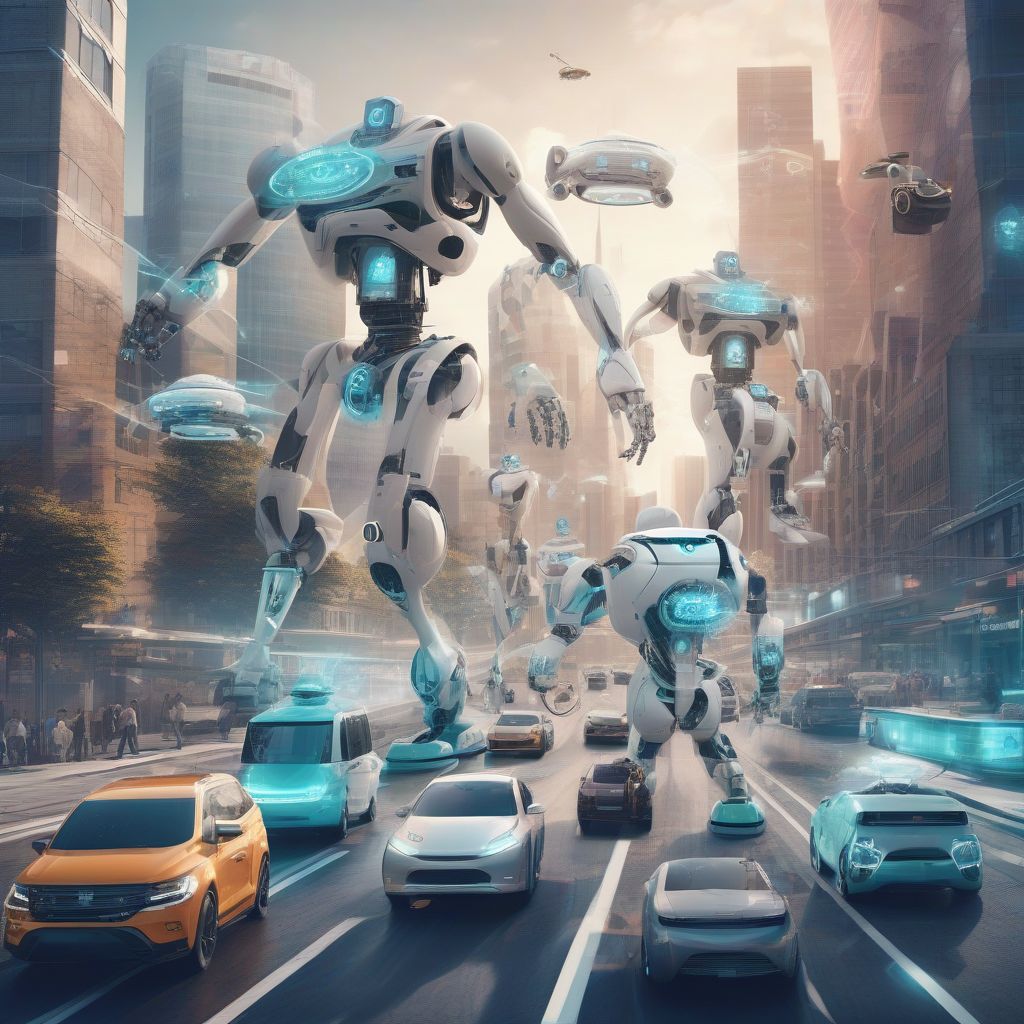Imagine a world where machines not only perform tasks but also learn, adapt, and even predict outcomes. This isn’t science fiction; it’s the reality of how artificial intelligence (AI) is transforming industries across the globe. From healthcare and finance to manufacturing and entertainment, AI is revolutionizing how businesses operate, innovate, and compete. But how exactly is this happening, and what does it mean for the future?
The AI Revolution: A Deep Dive into Industry Transformation
AI’s impact is far-reaching, impacting virtually every sector in profound ways. Let’s explore some key industries experiencing this transformative power:
Healthcare: Diagnosing Diseases and Personalizing Treatment
AI is revolutionizing healthcare by enabling faster and more accurate diagnoses. Imagine AI-powered tools analyzing medical images to detect subtle anomalies a human eye might miss, leading to earlier and more effective interventions. AI algorithms are also personalizing treatment plans by considering individual patient data, genetics, and lifestyle factors. This allows for tailored therapies, improving outcomes and reducing side effects. As a nutritionist and meal prep coach, I see the potential for AI to personalize dietary recommendations and create customized meal plans that address individual needs and health goals.
Finance: Detecting Fraud and Automating Trading
In the financial world, AI algorithms are combating fraud by identifying suspicious patterns and transactions in real-time. They’re also automating trading decisions, optimizing investment portfolios, and providing personalized financial advice based on individual risk profiles. This not only enhances efficiency but also mitigates risks and improves financial outcomes for both institutions and individuals.
Manufacturing: Optimizing Production and Predictive Maintenance
AI-powered robots are streamlining manufacturing processes, improving efficiency, and reducing errors on assembly lines. Predictive maintenance algorithms analyze sensor data from machinery to anticipate potential failures, minimizing downtime and optimizing maintenance schedules. This leads to cost savings and improved overall productivity.
Retail and E-commerce: Personalized Recommendations and Enhanced Customer Service
AI is personalizing the shopping experience by analyzing customer data and providing targeted product recommendations. Chatbots powered by AI offer instant customer support, answering queries, and resolving issues efficiently. This enhances customer satisfaction and boosts sales.
Transportation: Self-Driving Cars and Optimized Logistics
Self-driving cars, powered by AI, are poised to revolutionize transportation by improving safety, reducing traffic congestion, and enhancing fuel efficiency. AI algorithms are also optimizing logistics and supply chain management, predicting demand, and streamlining delivery routes.
 AI Transforming Industries
AI Transforming Industries
The Impact on Businesses: Efficiency, Innovation, and Competitive Advantage
AI isn’t just about automating tasks; it’s about driving innovation and creating new possibilities. Businesses that embrace AI gain a significant competitive advantage by:
- Improving Efficiency and Productivity: AI automates repetitive tasks, freeing up human employees to focus on higher-value activities.
- Driving Innovation: AI algorithms can analyze vast amounts of data to identify trends, patterns, and insights that humans might miss, leading to new product development and business strategies.
- Enhancing Customer Experience: AI personalizes interactions, providing tailored recommendations and support, leading to increased customer satisfaction and loyalty.
- Reducing Costs: AI optimizes processes, minimizes waste, and predicts potential failures, leading to significant cost savings.
The Future of AI: Challenges and Opportunities
While AI offers immense potential, it also presents challenges. Addressing ethical concerns, ensuring data privacy, and managing the potential impact on employment are crucial. However, the opportunities far outweigh the challenges. As AI continues to evolve, we can expect even more transformative changes across industries, creating a future where machines and humans work together to solve complex problems and achieve unprecedented progress. “The future of AI is not about replacing humans, but about augmenting human capabilities and creating a more efficient and innovative world,” says a leading AI researcher.
Conclusion: Embracing the AI-Powered Future
AI is not just a technological trend; it’s a fundamental shift in how we live, work, and interact with the world. From healthcare to transportation, AI is transforming industries at an unprecedented pace. By understanding the potential of AI and addressing the associated challenges, businesses can harness its power to drive innovation, improve efficiency, and create a more prosperous future. Embrace the AI revolution, and be a part of shaping the future.
What are your thoughts on the impact of AI across industries? Share your insights and join the conversation in the comments below! And don’t forget to share this article with your network to spread the word about the transformative power of AI.



